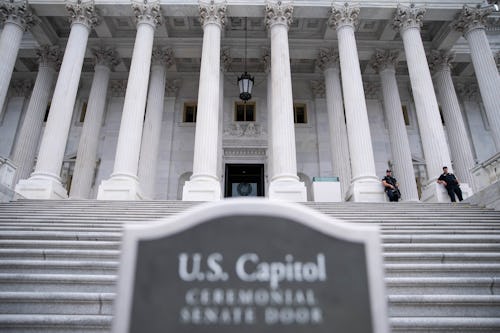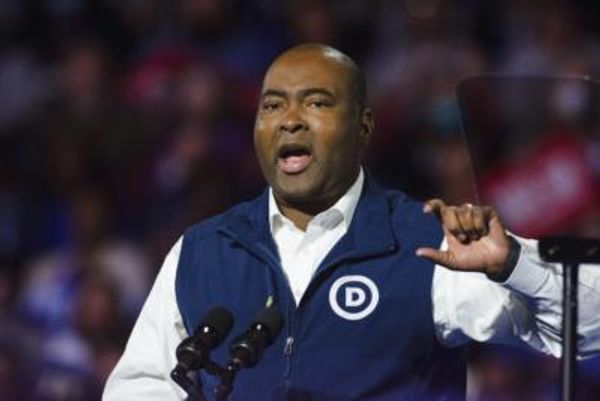
The United States Capitol Police announced Monday that the unnamed officer who shot and killed pro-Trump insurrectionist Ashli Babbit outside House Speaker Nancy Pelosi's office on Jan. 6 will not face any disciplinary action, and that their actions were "lawful and within Department policy."
Saying that "the actions of the officer in this case potentially saved Members [of Congress] and staff from serious injury and possible death," the Capitol Police's statement Monday is the latest step on the part of the nearly 200-year-old law enforcement branch to both address and move past last year's attempted insurrection. As part of that effort, the Capitol Police will for the first time in its history be expanding out of its namesake locale by opening up a pair of field offices in both San Francisco and Tampa, Florida.
The announcement of the as-of-yet unopened field offices was initially tucked in a six-month retrospective statement on the Jan. 6 insurrection, released by the Capitol Police this past June. While that statement offered little detail on the developing plans, the San Francisco Chronicle reported Monday that the impetus for the new offices is in large part a result of the uptick in threats against members of Congress.
Speaking with the Chronicle, however, Illinois Republican Rep. Rodney Davis noted that the plans for opening field offices had been in the works in some form before the Jan. 6 insurrection, fueled to some degree by how expensive it was for Capitol Police to travel from various states to and from D.C. as part of their protective roles.
"They're not talking about opening up their own individual offices," Davis said. "They’re talking about working within the existing fusion centers. So it’s not as though they’re going to stand up an agency. They’re going to work hand-in-hand with local law enforcement."
Those fusion centers — workplaces in which multiple different intelligence and law enforcement agencies pool their resources and efforts — are a sign that the Capitol Police are taking seriously the post-Jan. 6 allegations that they were largely unprepared for the Trump-inspired riot that breached their perimeter, or had at least failed to share the relevant data with their respective law enforcement partners. In the same six-month retrospective report, the Capitol Police offered a tacit admission that they were, as an institution, ill-prepared for what ensued, writing that the organization has committed to "moving forward along a new path towards an intelligence-based protective agency."
Mike Sena, the executive director of the existing Northern California Regional Intelligence fusion center, offered comparisons to the U.S. Marshals or Secret Service as what the Capitol Police's expanded presence in the field might resemble.
"Having people at a local and regional level that are working with federal, state, local law enforcement day-to-day alleviates a whole lot of bureaucracy as well as lack of communication by folks that might be in Washington D.C., or folks on the ground locally," he told the Chronicle.
That the officer who shot and killed Babbitt — a source of significant anti-government conspiracy mongering among the Republicans — will not face and disciplinary measures or criminal charges suggests that the Capitol Police are ready to move forward with their plans to transform the agency into a 21st-century enterprise without allowing partisan bluster from the right to derail the effort. But it does beg the question: Is the expansion of yet another law enforcement agency really a good thing?







